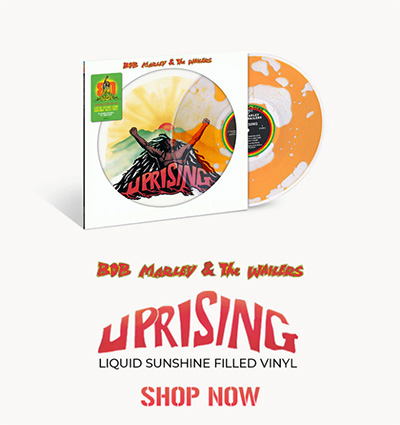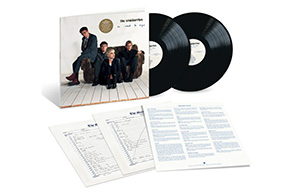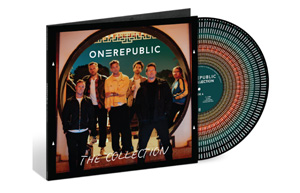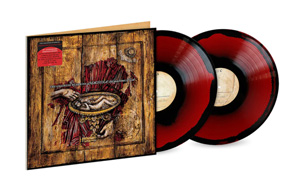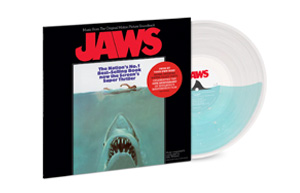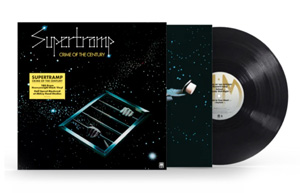How Dancehall Took On The Charts – And Won
Dancehall was noisy and brash, but it stormed the charts in the 80s and is now embraced by everyone from Drake to Justin Bieber.
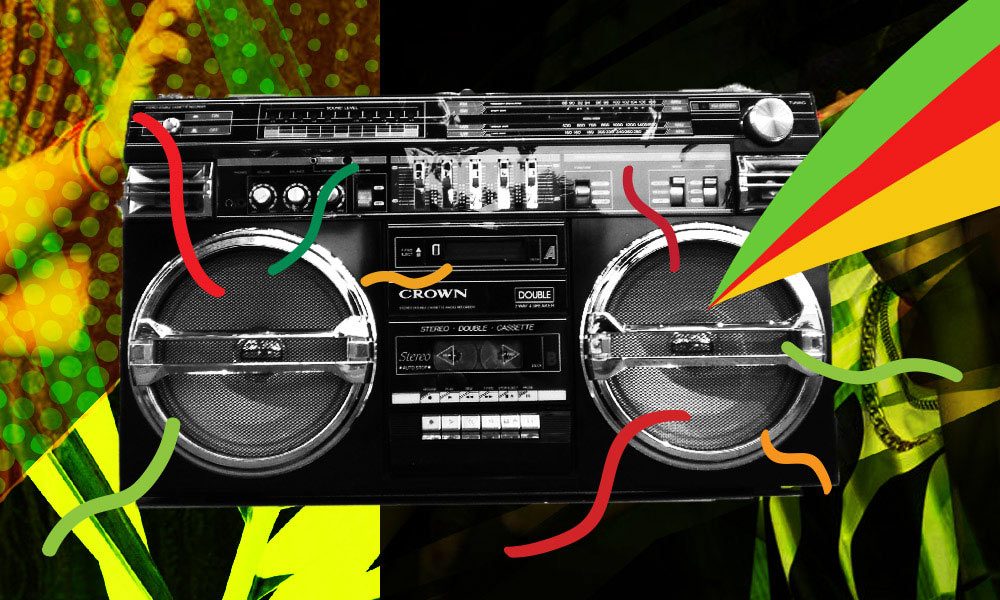
Old-school reggae fans didn’t understand dancehall. This noisy, brash music came along in the 80s with a raw, street-driven sound and, for a while, made what had gone before it in Jamaican music look very dated – much as hip-hop had done with funk in America. Old-school roots reggae would find its place again when things settled down and dancehall became mainstream, but during the first half of the 80s and into the middle of that decade, dancehall was a revolution in reggae. This revolution was soon marching up the pop charts too, for three simple reasons: it was fun, accessible and, as the name implies, you could dance to it.
More recently, dancehall has been part of pop itself, as chart acts such as Drake (“One Dance,” “Controlla”) and Rihanna (“Pon De Replay,” “Work,” which also features Drake) have absorbed its musical lessons and used them to give their own music a booty-kicking twist. This development has been tagged “tropical house,” but don’t be fooled. It’s dancehall.
The origins of dancehall
Dancehall got its name because that’s where it was born: in the places where sound systems played reggae music. In Jamaica, that was often not a hall at all, but an open space – a “lawn” in original dancehall parlance – but the culture was the same. Sound systems had a strong tradition of having live entertainers take the mic while records played – hence Jamaican rappers were called DJs and MCs, as they were working with the DJ who played records and also acted as master of ceremonies for the night. Sound systems also had singers take the mic, and the DJs would trade lines with them.
The culture was there during the early 80s, and even earlier; all the producers had to do was record it. In 80s Jamaica, producers often began as sound-system operators, such as King Jammy, King Tubby, and Henry “Junjo” Lawes; they knew the music inside out. Dancehall’s sound was stripped down, reliant on drum and bass lines with minimal further accompaniment, and often built on spartan remakes of old reggae rhythms. This was all perfectly logical, since the DJs chatted over the “version” sides of vinyl singles: the pared-down, vocal-free mixes pressed on the back of Jamaican 7”s for just this purpose.
By 1983 the dancehall sound was established in Jamaica but was receiving almost no mainstream media coverage in the UK and US, where, if reggae was mentioned or played at all, it was mostly said to have died with Bob Marley. Meanwhile, a reggae revolution was taking place. Dancehall needed a big personality or an unusual story to get noticed. In 1984 it got both.
Barrington Levy and the rise of the British MC
The big personality was Barrington Levy, and the unusual story was the rise of the British MC. Levy is one of those reggae singers who gives his music everything he has, willing to pop his eyeballs in the interest of getting that vital lyric across. Big not only in Jamaica, but with the Jamaican posses in Britain and the US East Coast, Barrington veered close to chart success with “Under Mi Sensi” in 1984, selling thousands of copies but falling short because legal radio got scent of what “sensi” was. His official follow-up, “Here I Come,” was licensed to London Records in the UK and made the Top 50, and would have done better had the label picked it up sooner. But Barrington proved dancehall could chart.
The unusual story found British reggae DJs suddenly ahead of their rivals, chatting faster, delivering lyrics that British kids could identify with, and sounding utterly modern at the time. British sound systems now had considerable talent to display, such as Smiley Culture, Tippa Irie, Asher Senator, Peter King, Papa Levi, and Macka B. Londoner Smiley Culture was the first to chart; he teetered on the verge of chart action with “Cockney Translation,” which drew parallels between East End slang and patois. In 1984 he made No.12 in the UK with “Police Officer,” a witty but pointed tale of a car-driving black youth’s brushes with authority.
The more roots-oriented Macka B found himself on TV’s Ebony and Club Mix; despite similar exposure, Tippa Irie had to wait until 1986 to hit with the love-it-or-loathe-it “Hello Darling.” The British dancehall artist of the era who hit biggest was not an MC at all, however, but the singer Maxi Priest, a familiar face on the South London dancehall scene who scored several small chart entries before a cover of Cat Stevens’ “Wild World” went Top 5 in 1988. He hit No.1 in the US with the R&B-flavored “Close To You” in the summer of 1990, and duets with Shabba Ranks kept him in the public eye.
Digital dancehall
In Jamaica, the sound shifted to ragga, a “digital” (i.e. fully electronic) form of dancehall in 1985, and from 1987 onwards an array of Jamaican performers saw major-label releases in the UK in search of chart action. Island Records signed Chaka Demus & Pliers, a DJ-singer combination that delivered a series of pop hits, including “Tease Me,” a cover of Curtis Mayfield’s “She Don’t Let Nobody,” “Twist And Shout” alongside Jack Radics, and “Murder She Wrote,” a record whose very dark undertones few seemed to notice.
Computerized studios meant you didn’t need to be Jamaican to get an authentic ragga sound, and Snow, a white kid from Canada who was a talented MC, scored with “Informer.” Apache Indian, a British Punjabi toaster, made “Boom Shack-A-Lak,” a huge 1993 hit in a style that owed something to retro R&B, and UK-Jamaican singing duo Brian And Tony Gold’s “Compliments On Your Kiss” was almost entirely indebted to the same form of music. Brit CJ Lewis did much the same thing with “Sweets For My Sweet,” and female duo Louchie Lou & Michie One hit heavily with the rather more uplifting “Shout.”
The lasting career of Shaggy, a Jamaican in New York, was also built on older foundations, with a cover of the Jamaican R&B/ska smash “Oh Carolina.” Dawn Penn’s 1994 smash “You Don’t Love Me (No, No, No)” landed somewhere between dancehall and roots reggae, and was based on her own 1966 version of an R&B tune. Ini Kamoze, one of Jamaca’s most interesting talents of the 80s, hit big with the unstoppable “Here Comes The Hotstepper” in 1994, a song almost entirely comprised of hooks.
There’s little doubt that, to the pop fan, this was basically just jollity. Few seemed to differentiate between Apache Indian’s biggest hit and the earlier works of Shaggy, and “Mr. Lover Man,” one of the hits by Jamaica’s ruling DJ of the start of the 90s, Shabba Ranks, was doubtless confused with Shaggy purring “Mr. Lover Lover” on 1995’s “Boombastic.”
Dancehall goes global
But in terms of pop music absorbing dancehall, that doesn’t matter. Dancehall had established its chart credentials: it was time for pop to rehash what it had heard. In 2004, Gwen Stefani teamed up with Eve and hit with “Rich Girl,” based on a song from the 60s musical Fiddler On The Roof, but the dancehall audience knew its inspiration was Louchie Lou & Michie One’s 1993 cut “Rich Girl.”
Legions of pop acts try a touch of dancehall, and the charts are stuffed with Jamaican grooves, whether delivered by Jamaicans or not. Kevin Lyttle’s “Turn Me On”; Sean Paul’s “Get Busy” and “Temperature”; Sean Kingston’s “Beautiful Girls”; Wayne Wonder’s “No Letting Go”; Rihanna’s “Pon De Replay,” her combo with Drake, “Work,” and the latter’s own “One Dance”; Beyoncé’s “Baby Boy”; Justin Bieber’s “Sorry”; Shakira’s “Hips Don’t Lie”… it’s all fundamentally dancehall, however it’s re-badged.
Misunderstood at the start, dancehall is now at the very heart of the global pop industry.





